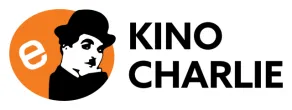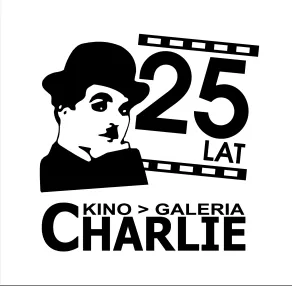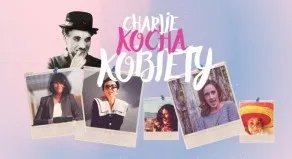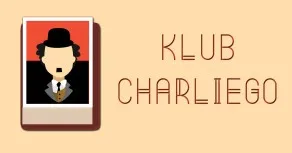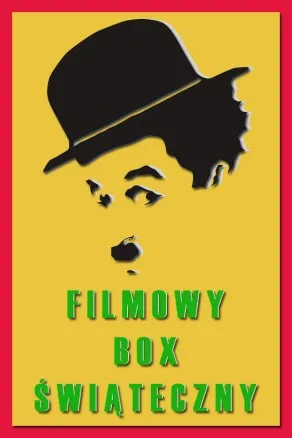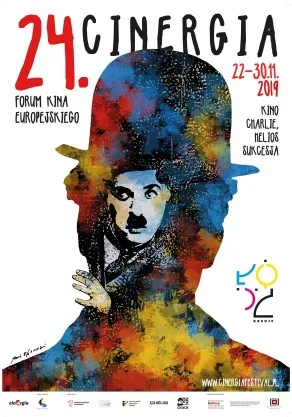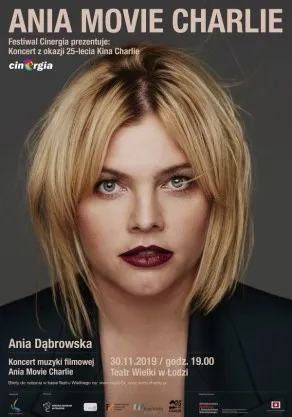
STRONA GŁÓWNA
/
REPERTUAR
/
ZAPOWIEDZI
/
WYDARZENIA
/
FESTIWALE
/
KINO
/
CENY BILETÓW
/
KONTAKT
FOTORELACJE
/
ZŁOTY GLAN
/
DLA SZKÓŁ
/
CHARLIE OUTSIDE
/
OPEN CINEMA
/
SKLEP
/
POLITYKA RODO
|
4-12 listopada 2010 r., Kino Charlie Wstęp Program Jury Bilety Karnety Akredytacje Kontakt Fotorelacja: Gala Otwarcia Plakat Spoty Pliki do pobrania Oficjalna strona festiwalu: www.cinergiafestival.pl Strona festiwalu w serwisie Facebook i Twitter
KINO WĘGIERSKIE
1) Gyorgi Palfi "Nie jestem twoim przyjacielem", 2009, Węgry 2) Krisztina Goda "Kameleon", 2009, Węgry 3) Aron Matyassy "Stracone czasy", 2009, Węgry 4) Roland Vranik "Transmisja", 2009, Węgry 5) Nagy Viktor Oszkar "Father's Acre", 2009, Węgry 6) Kornel Mundruczo "Delta", 2008, Węgry 7) Gergely Fonyo "Papryka, prochy i rock&roll" 2009, Węgry 8) Hajdu Szabolcs:" Biblioteka Pascala", 2010 Węgry 9) Diana Groo "Vespa", 2010 Węgry, Serbia 10) Nimrod Antal "Kontrolerzy", Węgry 2003 NIE JESTEM TWOIM PRZYJACIELEM I'm not your friend/ Nem vagyok a baratod Węgry 2009, 100' REŻYSERIA/DIRECTOR Gyorgy Palfi SCENARIUSZ/SCREENPLAY Gyorgy Palfi, Zsofia Ruttkay ZDJĘCIA/CINEMATOGRAPHY David Lukacs, Istvan Dala, Gergely Poharnok, Tamas Lehoczki OBSADA/CAST Istvan Szulek, Gyongyver Orszagh, Kim Corbisier, Kamilla Fatyol, Zsott Pall PRODUKCJA/ PRODUCTION Eurofilm Studio, Filmax, Katapult Film Kobiety płaczą - mężczyźni umierają. Sara kocha Marka. Będą mieć dziecko. Mark również kocha Sarę - na swój własny sposób. Ale Mark kocha również Sophie. Tak bardzo, jak ona kocha jego. Jednak Sophie nie lubi, kiedy jest oszukiwana. Lubi raczej, kiedy jest adorowana. Adorować Sophie lubi Adreas. Chętnie adoruje również swoją żonę, Ritę. Robi to ponieważ ją kocha. Uwielbia ją obejmować. Ale ona nie chce być obejmowana. Chce się kimś opiekować. Dlatego opiekuje się Nataszą. Dla niej jednak nie ma to żadnego znaczenie. Ona umiera. Jest zakochana w życiu. Dla niej życie to Jimmy. Życie Jimmy'ego to także Natasha, szczególnie, jeśli spłaca jego dług zaciągnięty u Etele, co ratuje mu życie. Bowiem Etele nie zna litości. Tak, jak Petra pozostaje niewzruszona w stosunku do niej. Petra kocha Etele, ale ta zakochana jest jednak w Sarze. Sama Sara, odwzajemnia uczucie Etele - na swój własny sposób. "Nie jestem Twoim przyjacielem" to film improwizowany - nie tylko dzięki dziewięciu aktorom - amatorom, ale także dzięki reżyserowi i scenarzyście. Ta historia filmowa rozwinęła się w ciągu 20 dni zdjęć dzięki pomysłom i reakcjom członków ekipy filmowej w całość, która jest przedstawiana widzom. Sama historia jest być może mniej istotna niż świat, w którym się odbywa, świat Budapesztu 2008 roku. A jeszcze ważniejszym jest to, że film uświadamia, że wszyscy ludzie, ci spotkani w tramwaju, w kolejce w sklepie spożywczym lub siedzący obok nas w kinie, absolutnie wszyscy - jesteśmy tacy sami. W tym świecie jest trochę dobra, trochę zła, na pewno jednak jest on ciekawy i sympatyczny - na swój sposób. Women are crying - men are dying. Sara loves Mark. They are going to have a baby. Mark also loves Sara - in his own way. Mark loves Sophie too. Just as well as Sophie loves Mark. But Sophie does not like when she is cheated. She rather likes if she is pampered. And Andras likes to pamper Sophie. Andras would be happy to pamper his wife, Rita too. Because he loves her. He loves to twist the tail of her. But Rita does not like to be twitted. She would like to take care of somebody. So she takes care of Natasha. But Natasha does not care with anybody. She is dying. She is in love with life. And life means Jimmy for her rightnow. For Jimmy life also means Natasha - especially if she pays back the money he owes to Etele, that would save his life. Because Etele does not give mercy. Neither does Petra to Etele. Petra loves Etele. But Etele still loves Sara instead. And Sara loves Etele too - in her own way. I am Not Your Friend is a film of improvisations - not only from the part of the nine amateur actors, but from the D.O.P, the director and the scriptwriters as well. The story unfolded itself instantly by the reactions and ideas of actors during the 20 days of shooting and developed into what is presented to the audience. But the story perhaps is less important than the world which opens up in front of us, a taste of Budapest in January 2008. And even more important is the revelation that all those we travel next to on the metro or on the tram or those we stand together in the queue at the grocery or those we sit together in the cinema, they are all the same humans as we are. A little bit good a little bit evil but definitely extremely exciting and lovable - in their own way. Gyorgy Palfi Urodził się w Budapeszcie w 1974 roku. Studiował na Węgierskim Uniwersytecie Teatru, Filmu I Telewizji od 1995 roku. Tam zrealizował kilka krótkometrażowych filmów. "Hukkle", wyprodukowany w 2002 roku, jego debiut fabularny, był zaproszony na ponad 100 międzynarodowych festiwali filmowych i zdobył kilka nagród, w tym Fassbinder Award na EFA'a European Discovery w 2002 roku. "Taxidermia", jego druga fabuła, zdobyła cztery nagrody w trakcie 37-ego Węgierskiego Tygodnia Filmowego (dla najlepszych aktorów, najlepszego reżysera, nagrodę studenckiego jury oraz nagrodę Gene Moskowitz). Born in Budapest in 1974, György Pálfi joined the Hungarian University of Drama, Film and Television in 1995. There, he directed several short films. Hukkle, made in 2002, his first feature was invited to more than 100 international film festivals worldwide and won several recognitions including EFA's European Discovery 2002 - Fassbinder Award. Taxidermia, his second feature was awarded the Main Prize, Best Supporting Actress and Actor, Best Art Director, Student Jury's Main Prize and the Gene Moskowitz Prize at the 37th Hungarian Film Week in Budapest. Filmografia/ filmography 2009 - I am Not Your Friend / Nem vagyok a barátod 2006 - Taxidermia 2003 - Shaman vs. Icarus / Táltosember vs. Ikarus 2002 - Hukkle 1998 - Round and Round / Körbe 1998 - Knock, Knock - Seventh Room: Devil's Lock / Valaki kopog - Hetedik szoba: Ördöglakat (s) 1997 - The Fish / A hal - Ikhthüsz 1994 - Break and Check II / Break és Csekk II. CHAMELEON Kameleon Węgry 2008, 108' REŻYSERIA/DIRECTOR Krisztina Goda SCENARIUSZ/SCREENPLAY Krisztina Goda, Reka Divinyi ZDJĘCIA/CINEMATOGRAPHY Buda Gulyas, Tamas Babos OBSADA/CAST Ervin Nagy, Gabriella Hamori, Zsolt Trill, Janos Kulka, Sandor Csanyi PRODUKCJA/ PRODUCTION Megafilm, M&M Film, Magyar Mozgokep Alapitvany Gábor Farkas to zawodowy oszust. Rozkochuje w sobie kobiety a następnie wyłudza od nich oszczędności. Pewnego dnia odczuwa zmęczenie drobnymi oszustwami, ma ochotę dokonać czegoś wielkiego. Spotyka Hannę, bogatą i piękną baletnicę, która stara się wrócić na scenę po nieobecności spowodowanej wypadkiem. Gábor musi stosować mnóstwo tricków, by kobieta traktowała go poważnie: nabywa luksusowe mieszkanie, samochód sportowy, dyplom lekarza a nawet cały szpital - wszystko po to, by jej zaimponować. Jego kłamstwa komplikują się jednak na tyle, że już sam nie jest pewien, co chce osiągnąć. Gábor Farkas is a conman by profession. He ensnares plain-looking, lonely women with acts of love and then cheats them out of their savings. One day he becomes tired of his small-time swindles and craves a real challenge. He meets Hanna, a rich and beautiful ballerina who is trying to return to the stage after an absence from it caused by an accident. Gábor has to use every trick up his sleeve in order to make the girl take him seriously: he acquires a luxury apartment, a sports car, a medical degree and even an entire hospital to impress her. But his lies are so complicated that he gets entangled in his own ropes and in the end is no longer even sure what he wants to achieve. Krisztina Goda Absolwentka British National Film and Television School, gdzie studiowała reżyserię, Goda jest również absolwentem programu pisania scenariuszy w szkole filmowej na UCLA. Wyreżyserowała kilka nagradzanych filmów krótkometrażowych, a także dokumentów i reklam telewizyjnych. Reżyserowała "Dowód", sztukę teatralną wg Davida Auburna w Teatrze Merlin w Budapeszcie. Jej debiutancki film fabularny, "Tylko seks i nic więcej "(2005), był wielkim sukcesem. Komedia romantyczna z udziałem Judit Schell, Katy Dobo i Sandora Csanyi osiągnęła wielkie sukcesy w węgierskich kinach, film obejrzało ponad 500 000 widzów. "Mogul" wyreżyserowany przez Godę i wyprodukowany przez Andy G. Vajna jest szanowanym na całym świecie filmem o rewolucji węgierskiej w 1956 r. Trzeci film Gody , "Chameleon" (2008), miał świetny odbiór zarówno na Węgrzech, jak i na całym świecie. A graduate of the British National Film and Television School where she studied film direction. Krisztina Goda also graduated from the screenwriting program of the UCLA - Universitiy of California, Los Angeles Film School. She has directed several award winning short films, as well as a documentary and television commercials. She has directed David Auburn's play, Proof at the Merlin Theatre (Budapest). "Just Sex and Nothing Else" was her debut work as a feature film director. The romantic comedy starring Judit Schell, Kata Dobó and Sándor Csányi was an outstandig success in the Hungarian theatres, it made more than 500 000 admissions. "Mogul," directed by Gode and produced by Andy G. Vajna is respected around the world, a film about the Hungarian revolution in 1956, the third film mating, "Chameleon" (2008), had a great reception both in Hungary and worldwide. Filmografia/ Filmography 2008: Chameleon / Kaméleon 2006: Children of Glory / Szabadság, szerelem 2005: Just Sex and Nothing Else / Csak szex és más semmi LOST TIMES Utolso idok Węgry 2009, 90' REŻYSERIA/DIRECTOR Aron Matyassy SCENARIUSZ/SCREENPLAY Aron Matyassy ZDJĘCIA/CINEMATOGRAPHY Mate Herbai OBSADA/CAST Jozsef Kadas, Terez Vass, Eszter Foldes, Atilla Kasvinszki, Marianna Szalay PRODUKCJA/ PRODUKTION Ernst Bank, MTV Networks, Unio Film 1997 rok, gdzieś przy wschodniej granicy Węgier - właśnie tam, Iván, mechanik samochodowy mieszka ze swoją siostrą, Eszter, młodą kobietą dotkniętą autyzmem. Iván dorabia na przemycie paliwa. Pewnego dnia Eszter zostaje zgwałcona w pobliskim lesie. Dochodzenie policji nie prowadzi do wyjaśnienia sprawy, wręcz przeciwnie - staje się obciążeniem dla Ivana. Eszter, po traumatycznym wydarzeniu, boi się o swoje życie, zamyka w sobie, nie chce z nikim rozmawiać. Iván zakochuje się w Ilus, dziewczynie z jego wioski, która po skończeniu szkoły i zdaniu egzaminów na uniwersytet, zamierza przenieść się do innego miasta. Ivan zostaje sam. Jego plany się nie powiodły, policja namawia go do zaprzestania zajmowaniem się przemytem benzyny. W tym czasie Iwan napotyka na ślady prowadzące do gwałciciela Eszter. Nie ma zamiaru wyjawiać ich policji, zamiast tego decyduje się wziąć sprawy we własne ręce. 1997, somewhere near the border in Eastern Hungary. This is where Iván, a car mechanic lives with his sister Eszter, who is a young woman with autism. Iván earns some extra money by smuggling diesel oil across the border. One day Eszter is raped by a stranger in the nearby forest. The police investigation leads nowhere and even becomes a burden for Iván. After the traumatic event Eszter carries on living her life as she used to but becomes mute, refusing to speak to anybody. Iván falls in love with Ilus, a girl from his village, who just finished her school leaving examination and will move to another town as she has gained admission to a university. Soon Iván finds himself alone. His plans seem to have failed and the police warn him to give up his oil smuggling. By this time Iván has stumbled across some revelations connected to Eszter's rape, however, he has no intention of going back to the police but instead decides to take the law into his own hands. Aron Matyassy Urodzony w Budapeszcie w 1978 roku, tam tez podjął studia. Ukończył Uniwersytet Eötvösa Loránda (Wydział Filozofii - Teoria filmu) w 2000 r. a także Węgierską Akademię Teatralną i Filmową (Zakład Filmu i Telewizji) w 2005 roku. Wyreżyserował kilka filmów krótkometrażowych. Debiut fabularny Matyassy, "Lost Times" (2009) zdobył główną nagrodę 40-tego Węgierskiego Tygodnia Filmowego - Golden Reel. Born in Budapest in 1978, he studied there, too. He graduated from Eötvös Loránd University (Faculty of Philosophy - Theory of a film) in 2000 and the Hungarian Academy of Theatre and Film (Department of Film and Television) in 2005. He has directed several short films. Matyassy feature debut, "Lost Times" (2009) won the main prize of the 40th Hungarian Film Week - Golden Reel. Filmografia/ Filmography 2009 - utolsó idôk / Lost Times 2006 - Mínusz / Minus 2004 - Talent 2004 - Nôvérek / Sisters 2003 - Nyari délután / Summer Afternoon 2003 - Immanens / Immanens 2002 - Rohatt dolog / Damned Thing 2001 - Agyagba öntött forma TRANSMISJA Transmission/ Adas Węgry 2009, 93' REŻYSERIA/DIRECTOR Roland Vranik SCENARIUSZ/SCREENPLAY Andras Barta, Roland Vranik ZDJĘCIA/CINEMATOGRAPHY Gergely Poharnok OBSADA/CAST Sandor Terhes, Zoltan Ratoti, Karoly Hajduk, Kata Weber, Eva Kerekes PRODUKCJA/ PRODUCTION Gabor Kovacs, Agi Pataki, Andras Poos, Gabor Rajna, Gabor Sipos, Judit Stalter Gdy krajobraz opustoszał, życie zamarło. Kilka osób postanowiło pozostać w mieście. Trzech braci spróbuje utrzymać się przy życiu. Komputery, telewizory, telefony komórkowe i inne urządzenia telekomunikacyjne przestaną działać, ludzie zaczną odczuwać potworny ból izolacji. Bracia spróbują przezwyciężyć własne osobiste problemy, rozpoczną się poszukiwania alternatywnego stylu życia. When the pictures were gone, life stopped. A few people stayed in the city. Three brothers try to stay alive. Computers, TVs, cel tels and other telecom devices no longer work and the people are suffering severe withdrawal pains. Brothers try to overcome their own major personal problems as the society slowly begins to find alternative ways of living. Roland Vranik Po ukończeniu studiów w 1987 roku pracował przy powstaniu kilku filmów dyplomowych, krótkometrażowych, krajowych oraz międzynarodowych produkcjach fabularnych jako kierownik produkcji, asystent reżysera oraz jako członek Positive Production Workshop mający swą siedzibę w Budapeszcie. W Holandii wyreżyserował cztery filmy i współpracował przy kilku produkcjach realizowanych przez studentów Holenderskiej Akademii Filmowej. W 2000 roku otrzymał dotację od Studia Beli Balázsa Béla, napisał scenariusz i wyreżyserował eksperymentalny film krótkometrażowy "Dominator 2000". W tym samym roku został asystentem reżysera w "Werckmeister Harmonies" reżyserowanym przez Bélę Tarra. Przed stworzeniem swojego pierwszego filmu fabularnego - "Fekete kefe" ("Black brush") w 2005 roku, zrealizował około 30 spotów i teledysków. After graduation in 1987, he worked on several diploma films, shorts and national/international feature films as production manager and director's assistant and as a member of the Positive Production Workshop based in Budapest. Later he worked in the Netherlands where he directed four films and collaborated in several productions made by the students of the Dutch Film Academy. In 2000 he received a grant from the Béla Balázs Studio and directed and wrote the experimental short film DOMINATOR 2000. The same year he was director's assistant of WERCKMEISTER HARMONIES directed by Béla Tarr.He also made some 30 spots and video clips before directing his first feature film FEKETE KEFE (BLACK BRUSH) in 2005. Filmografia/ Filmography 2009 - Transmission / Adás 2004 - Black Brush / Fekete kefe 2000 - Werckmeister Harmonies / Werckmeister harmoniák, feature (dir.) Béla Tarr, as Dir. assistant 2000 - Dominátor 2000 1998 - Alex Summmer 1996 - Walk / Séta Father's Acre Apafold Węgry 2009, 80' REŻYSERIA/DIRECTOR Viktor Oszkar Nagy SCENARIUSZ/SCREENPLAY Viktor Oszkar Nagy ZDJĘCIA/CINEMATOGRAPHY Tamas Dobos OBSADA/CAST Janos Derzsi, Tamas Ravasz, Andrea Nagy, Istvan Znamenak PRODUKCJA/PRODUCTION Peter Miskolczi Ten grunt wytyczony jest na skraju winnicy, jego ziemia aż do szczytu wzgórza jest nieurodzajna i skalista. Na samym szczycie rośnie jedno drzewo. To miejsce, w którym niebo łączy się z ziemią. O tym, co dzieje się, gdy ojciec wraca do swego syna po długim pobycie w więzieniu. Chcąc żyć ze swym dzieckiem, który wypomina mu jego długą nieobecność (w której trakcie zmarła matka), ojciec próbuje wpoić mu pewne wartości, a także kupuje kawałek ziemi, na którym hodować można winorośle. Syn całkowicie odrzuca jednak ojca, napięcie między nimi potęguje się, gdy ten wchodzi w bliższą relację z siostrą jego byłej żony. The land marked out with stakes is the edge of the vineyard and all the way to the top of the hill the land is inarable and rocky. There is a tree on the hilltop. This is where the sky meets the earth. How a father returns to his son after a long period in prison. Anxious to be reconciled with his child - who reproaches him for his absence (the mother having died in the interim) - the father tries to teach him some values and buys a piece of land in order to plant a vine. However, the son totally rejects this paternal figure and the tension grows further when the father starts a relationship with his former wife's sister. Viktor Oszkár Nagy Urodził się w 1980 w Gyöngyös na Węgrzech. W 2009 roku ukończył reżyserię filmową na Uniwersytecie Dramatu i Filmu w Budapeszcie. Jego pracą dyplomową był film fabularny "Apaföld" ("Father's Acre"), zwycięzca nagrody Gene Moskowitz przyznawanej przez zagranicznych krytyków podczas 40-tego Węgierskiego Tygodnia Filmu. He was born in 1980 in Gyöngyös, Hungary. In 2009 he graduated as a film director at the University of Drama and Film in Budapest. His diploma work was the feature film Apaföld (Father's Acre, 2009) that won the foreign critics' Gene Moskowitz Award at the 40th Hungarian Film Week. Filmografia/ Filmography 2010 - Bernadett & Sanju 2009 - Apaföld / Father's Acre 2006 - A vizsga / The Exam 2006 - Öreg fa / The Old Tree 2005 - A tárca / The Purse DELTA Węgry, Niemcy 2008, 96' REŻYSERIA/DIRECTOR Kornel Mundruczo SCENARIUSZ/SCREENPLAY Kornel Mundruczo, Yvette Biro ZDJĘCIA/CINEMATOGRAPHY Matyas Erdely OBSADA/CAST Felix Lajko, Orsi Toth, Lili Monori, Sandor Gaspar PRODUKCJA/ PRODUCTION Milczący młody mężczyzna powraca do dzikiego, odizolowanego krajobrazu delty Nilu. To labirynt dróg wodnych, małych wysepek i bujnej roślinności, którego mieszkańcy są odcięci od świata zewnętrznego. Mężczyzna, który nie był tu od czasu wczesnego dzieciństwa zostaje przedstawiony swojej siostrze, o której istnieniu nie miał pojęcia. Razem budują oni dom na palach na środku rzeki, daleko od całej społeczności zamieszkującej deltę. Milczenie miedzy nimi narasta, a wraz z nim niebezpieczne uczucie: miłość. Pewnego dnia rodzeństwo zaprasza mieszkańców wioski na wspólny posiłek, niedelikatni tubylcy nie akceptują ich "nienaturalnej" relacji. A taciturn young man returns to the wild, isolated landscape of the Delta. It is a labyrinth of waterways, small islands and over-grown vegetation, where the villagers are cut off from the outside world. The young man, who has been away since early childhood, is introduced to a sister he never knew he had. Together they build a house on stilts in the middle of the river, far away from everyone else. The silence between them grows. Grows into a dangerous affection: love. One day, they invite the villagers over to share a meal together, but the coarse locals do not accept their "unnatural" relationship. Kornel Mundruczo Urodził się na Węgrzech w 1975 roku. Studiował na Węgierskiej Akademii Teatru i Filmu jako aktor, rozpoczął również studia na kierunku reżyserii filmowej. Jego krótkometrażowy film "Afta" zdobył wiele międzynarodowych nagród (Oberhausen, Kraków, Ludwigsburg, Imola i Sankt Petersburg). "Przyjemne dni", jego pierwszy film fabularny, otrzymał Srebrnego Lamparta, nagrodę festiwalu w Locarno w 2002 roku. Rok później, film "Joanna Dark w nocnym autobusie" został zaproszony do sekcji Director's Fortnight festiwalu w Cannes. Jego film dyplomowy "Little apocrypha no.2" był pierwszym węgierskim uczestnikiem Cannes' Cinéfondation. Kornel Mundruczo swą produkcją "Delta" dołączył w 2003 roku do Cannes Résidence. Jego drugi film fabularny, "Johanna", filmowa adaptacja historii Joanny D'Arc prezentowany był podczas Cannes Un Certain Regard w 2005 roku. W 2008 roku, jego trzecia fabuła, "Delta", zdobyła nagrodę Golden Reel podczas 39-tego Węgierskiego Tygodnia Filmu i była prezentowana w konkursie Festiwalu Filmowego w Cannes, gdzie zdobyła nagrodę FIPRESCI. Born in Hungary in 1975. He studied at the Hungarian Academy of Drama and Film as an actor and in the same year began studies as a film director. His short film AFTA went on to win numerous international awards (Oberhausen, Krakow, Ludwigsburg, Imola and St. Petersburg). "PLEASANT DAYS", his first feature, was awarded the Silver Leopard in Locarno in 2002. In 2003 "JOAN OF ARC ON THE NIGHT BUS" was invited to Director's Fortnight in Cannes. His diploma film LITTLE APOCRYPHA No. 2 was the first Hungarian participant of Cannes' Cinéfondation. Kornél entered in the Cannes Résidence in 2003 with his project "DELTA". His second feature film, "JOHANNA" - an operatic adaptation of the story of Joan of Arc - was presented in Cannes Un Certain Regard in 2005. In 2008, DELTA, his third feature, was awarded the Golden Reel Main Prize for best film at the 39th Hungarian Film Week, and was presented in competition in Cannes, where it received the FIPRESCI Prize. Filmografia / filmography 2010 - Tender Son - The Frankenstein Project / Szelíd teremtés - A Frankenstein -terv 2008 - Delta 2005 - Johanna 2005 - Lost and Found - Short Lasting Silence 2004 - Little Apokrypha No. 2 / Kis Apokrif No. 2 2002 - Pleasant Days / Szép napok 2003 - Joan of Arc on the Night Bus /A 78-as Szent Johannája 2003 - Little Apocrypha No. 1 / Kis Apokrif No. 1 2001: Day after Day / Afta 1999: This I Wish and Nothing More / Nincsen nekem vágyam semmi PAPRYKA, SEX I ROCK'N'ROLL MADE IN HUNGARIA Węgry 2009, 108' REŻYSERIA/DIRECTOR Gergely Fonyo SCENARIUSZ/SCREENPLAY Istvan Tasnadi ZDJĘCIA/CINEMATOGRAPHY Sandros Csukas OBSADA/CAST Tamas Szabo Kimmel, Tunde Kiss, Eva Vandor, Tamas Dunai, Geza Kaszas PRODUKCJA/ PRODUCTION Next Station Productions, HCC Media Group, Sunny Film W czasach, w których wszyscy chcą uciec na Zachód, młody chłopak wraca z Ameryki w swe rodzinne strony, by szerzyć tam rock'n'roll... Wiosną 1963 roku Miki i jego rodzice, po 4 latach pobytu w Ameryce, wracają do rodzinnego Budapesztu. Powrót na Węgry rewolucjonistów i kontrrewolucjonistów, takich jak bezrobotny ojciec Mikiego i Miki, który jest świetnym gitarzystą i wokalistą marzącym o staniu sie następnym Jerrym Lee Lewisem, jest nieakceptowany przez jego dawnych przyjaciół, których nowy lider, Rone jest określany jako "Kingfisher". Pierwsza miłość Mikiego, Vera , ma teraz chłopaka. Mikiemu pozostaje więc jedno wyjście - dostać sie do konkursu talentów i udowodnić wszystkim, że w jego starym, chociaż nowym już świecie, wciąż jest dla niego miejsce. Grając amerykańską muzykę odnosi wielki sukces i rzuca czar na młodych słuchaczy. Coraz bardziej jasne staje się to, że dzięki swojemu sukcesowi Miki może odzyskać swoich przyjaciół, swoją miłość, a także uratować życie swojego ojca. At a time when everybody else would like to escape to the West an adolescent boy returns home from America to spread rock'n'roll... In the spring of 1963 Miki and his parents leave behind the American dream and after four years away return to Budapest. Back in Hungary revolutionaries and counter-revolutionaries alike regard Miki's jobless father with suspicion, while Miki - who is a great guitarist and singer with dreams of becoming the next Jerry Lee Lewis - is not accepted by his former friends whose new leader, Röné is referred to as the "Kingfisher". His first love, Vera, now has a new boyfriend. Miki is left with but one choice: to apply to a talent show and prove to everybody that he has a place in this old-new world. He is a great success and with his American music he casts a spell on his young audience. As the final is approaching it becomes clearer and clearer to Miki that with his victory he can gain his friends' appreciation, win back his love and even save his father's life. Gergely Fonyó Był asystentem operatora kamery zatrudnionym przez MAFILM w okresie między 1985 a 1991r. Pracował jako operator w węgierskich, a także międzynarodowych produkcjach. W okresie 1991 - 1998 r. przebywał w Los Angeles pracując jako operator kamery przy produkcji filmów fabularnych, teledysków i reklam. W latach 1997-1998 odbył kurs Extension - Entertainment Studies na UCLA. He was an assistant cameraman employed by MAFILM between 1985-1991, the he worked as a cameraman in several Hungarian and international productions. He lived in Los Angeles between 1991-1998 and worked as a cameraman in feature films, video clips and commercials. Between 1997-1998 he attended an Extension-Entertainment Studies course at the UCLA. Filmografia/ filmography 2009 - Made in Hungaria 2005: Young, Dumb and Full of Love! / Tibor vagyok, de hódítani akarok! 2002 - It's Summer at Long Last / Na végre itt a nyár! 2001 - A Film about Tamás Cseh / Cseh Tamás film 2000 - Johnny Famous / Kelj fel Jancsi 1999 - Coffee and Chat / Látogatás BIBLIOTEKA PASCALA Biblioteque Pascal Węgry, Niemcy, Wielka Brytania, Rumunia 2009, 105' REŻYSERIA/DIRECTOR Szabolcs Hajdu SCENARIUSZ/SCREENPLAY Szabolcs Hajdu ZDJĘCIA/CINEMATOGRAPHY Andras Nagy OBSADA/CAST Orsolya Torok - Illyes, Oana Pellea, Razvan Vasilescu, Andi Vasluianu PRODUKCJA/PRODUCTION Ivan Angelusz, Marco Gilles, Andras Hamori, Gabor Kovacs, Daniel Mann, Monika Mecs, Erno Mesterhazy, Agi Pataki, Andras Poos, Peter Reich, Judit Romwalter, Andrea Taschler Mona Paparu sama wychowuje swą trzyletnią córkę. Ze względu na konieczność wyjazdu za granicę musi zostawić dziecko pod opieką ciotki. Urząd Ochrony Dzieci odbiera jednak dziecko opiekunce. Po powrocie Mona musi zrelacjonować swój zagraniczny pobyt przed opiekującym się dzieckiem Urzędem. Film opowiada historię podróży kobiety, jej miłości i życia w zachodniej Europie, opisanych przez Monę Paparu. "Biblioteka Pascala" jest węgierskim kandydatem do nagrody Oscara w 2011 roku. Mona Paparu is bringing up her three-year-old daughter alone. Because of a trip abroad she has to leave the child with her aunt. The Child Protection Agency takes the little girl away from the aunt. When Mona returns home she has to give an account to the CPA on how she spent her time abroad. The film tells the story of her travels, her love and the story of her life in Western Europe... as recounted by Mona Paparu. "Bibliothéque Pascal" will be Hungary's submission for a nomination for a 2011 Oscar for Best Foreign Film. Szabolc Hajdu Szabolcs Hajdu urodził się w Debreczynie, na Węgrzech, w 1972 roku. Studiował na węgierskim Uniwersytecie Teatru i Filmu, tam wyreżyserował krótkometrażowy film "Necropolis", który zyskał niezwykłe uznanie krytyków. "Sticky Matters", jego pierwszy film fabularny, został tryumfatorem nagrody dla najlepszego debiutu filmowego podczas węgierskiego Tygodnia Filmu oraz Specjalnej Nagrody Jury podczas kijowskiego festiwalu MOLODIST w 2003 roku. Kolejny film, "Tamara", zdobyła główną nagrodę podczas festiwalu Avanca w 2005 roku. Jego film autobiograficzny, "White Palms" miał swoją premierę podczas Cannes Quinzaine des Réalisateurs w 2006 roku. Stoczył zwycięski bój o liczne międzynarodowe nagrody filmowe. Telewizyjna produkcja Hajdu, "Off Hollywood" prezentowany był podczas festiwalu filmowego w Edynburgu w 2008 roku. "Biblioteka Pascala", jego piąty film, zdobył nagrodę Golden Reel podczas 41-ego Węgierski Tygodnia Filmowego, swą międzynarodową premierę miał podczas 40-tej edycji Forum Berlinale w 2010 roku. Szabolcs Hajdu was born in Debrecen, Hungary in 1972. He studied at the Hungarian University of Drama and Film and directed the short film Necropolis, which gained remarkable critical acclaim. Sticky Matters, his first feature film, was awarded Best First Film of the Hungarian Film Week and Jury's Special Prize at the Kiev MOLODIST film festival in 2003. His next feature,Tamara, won First Prize at the AVANCA film festival in 2005. His autobiographical movie White Palms was premiered in Cannes Quinzaine des Réalisateurs in 2006. It went on to win numerous international awards. His television feature Off Hollywood was presented at the Edinburgh IFF in 2008. Bibliothéque Pascal, his fifth feature film, won the Golden Reel main prize of the 41st Hungarian Film Week and the international premiere was hosted by the 40th edition of Berlinale Forum in 2010. Filmografia/ Filmography 2010 - Bibliothéque Pascal 2007 - Off Hollywood 2006 - White Palms / Fehér tenyér 2004 - Everyday Encyclopedia 1 / Hétköznapi enciklopédia I. 2004 - Tamara 1998: Knock, Knock - Pagoda for Little Mara / Valaki kopog - Kicsimarapagoda 2000 - Sticky Matters / Macerás ügyek 1997 - Necropolis / Nekropolisz VESPA Węgry, Serbia 2010, 85' REŻYSERIA/DIRECTOR Diana Groo SCENARIUSZ/SCREENPLAY Diana Groo, Ivan Szabo ZDJĘCIA/CINEMATOGRAPHY Sandor Kardos OBSADA/CAST Sandor Toth, Juli Nyako, Rudolf Balogh, Janos Puporka, Gabor Nagypal PRODUKCJA/PRODUCTION Vision Team, Biberche, Tivoli Film 12 - letni Lali podczas gry w karty wygrywa tabliczkę czekolady, w której opakowaniu znajduje zwycięski kupon na motocykl Vespa. Ponieważ motocykl ten znajduje się w Budapeszcie, Lali opuszcza rodzinny Bereghrat i udaje się w podróż - nie tylko jednak po to, by odebrać nagrodę swoich marzeń , również po to, by spotkać się ze swoim od dawna nie widzianym ojcem. Twelve-year-old Lali wins a bar of chocolate at cards that contains a winning coupon for a Vespa motorbike inside the wrapper. However, the motorbike is in Budapest so leaves his community in Bereghát not only to find the prize of his dreams, but also his father, whom he has not seen for a long time... Diana Groó Urodziła się w 1973 roku w Budapeszcie. Na Wydziale Sztuk Pięknych Uniwersytetu Przyrodniczego Loránda Eötvösa (1992-1995) w Budapeszcie uzyskała tytuł licencjata, następnie kształciła się na Wydziale Filmu i Telewizji w Węgierskiej Akademii Filmowej. Jest współzałożycielem DocClub (2000), stowarzyszenia Madzag Film (2001) i Katapult Film (2002). Od 2001 roku jest dyrektorem i scenarzystą studia Cinema Film i studia Katapult. Po otrzymaniu nagród za swe dokumentalne i krótkometrażowe filmy, wyreżyserowała swój pierwszy film fabularny, "Cud w Krakowie" (CSODA KRAKKÓBAN) w 2004 roku. Od 2001 roku pracuje przy produkcji " Wild imagination", serii filmów o historii sztuki, w której przedstawia twórczość i życie takich malarzy jak Chagall, Renoir, Bruegel i Roussau. Pierwsze cztery epizody serii "Wild imagination" otworzyły wystawę sztuki współczesnej w Herzlya Muzeun, w Tel-Avivie, w Izraelu, w marcu 2005. W czerwcu 2005 r. seria został włączona do programu InterMedia "Intervisual between Painting & Cinema" na Uniwersytecie Haifa, w Izraelu, wraz z Peterem Greenawayem, Derekiem Jarmanem i innymi. Born in 1973 in Budapest. Diana Groó received her education in Budapest, Hungary, obtaining a Bachelor degree in French-Hebrew from the Faculty of Arts, Lórand Eötvös University of Sciences (1992-1995), followed by a Master in TV and Film Directing, Department of Film and Television Directing at the Hungarian Film Academy. She has co-founded DocClub (2000) and Madzag Film (2001) associations, and Katapult Film (2002). Since 2001 she is director and scriptwriter at the Cinema Film and Katapult Film studios. After her prize winning shorts and documentary films, she directed her first feature film, "A miracle in Cracow" (CSODA KRAKKÓBAN) in 2004. From 2001 she has been working on the "Wild imagination" art-history series, in the which she explored the art and life of such painters as Chagall, Renoir, Bruegel, and Roussau. The first four epidsods of the WILD IMAGINATION series opened the contemporary art exhibition in Herzlya Muzeun, Tel-Aviv, Israel in March 2005. In June 2005 the "Wild imagination" series were included into the InterMedia course program "Intervisual between Painting & Cinema" at Haifa University, Israel, along with Peter Greenaway, Derek Jarman and others. Filmografia/Filmography 2010 - Vespa 2009 - Eldorádó 2006 - Wild Imagination - The Garden of the Magician / Tarka képzelet - A virágünnep vége 2006 - The Way to the Future / Előttem az élet 2006 - Urlicht 2004 - A Miracle in Cracow / Csoda Krakkóban 2004 - Wild Imagination - Rousseau's Dreams / Tarka képzelet - Rousseau álmai 2004 - Wild Imagination - Bruegel's Dreams / Tarka képzelet - Flamand közmondások - Bruegel álmai 2003 - Wild Imagination - Renoir's Dreams / Tarka képzelet - Renoir álmai 2001 - Ways / Córesz 2001 - Wild Imagination - Over the Village - Chagall's Dreams / Tarka képzelet - Vityebszk felett - Chagall álmai 1999 - Kazinczy Street / Kazinczy utca 1997 - From Somewhere to Somewhere / Valahonnan valahová 1996 - Uncle Zsiga / Zsiga bácsi 1992 - Anne / Annuska KONTROLERZY Control/ Kontroll Węgry 2003, 105' REŻYSERIA/DIRECTOR Nimrod Antal SCENARIUSZ/SCREENPLAY Nimrod Antal ZDJĘCIA/CINEMATOGRAPHY Gyula Pados OBSADA/CAST Lajos Kovacs, Sandor Csanyi, Janos Kulka, Gyorgy Cserhalmi, Peter Scherer PRODUKCJA/ PRODUCTION Café Film, Bonfire Kto nigdy nie miał uczucia w pewnym momencie swojego dłuższego, czy krótszego życia, konieczności ucieczki od znanego sobie otoczenia? Schowania się przed światem, ucieczki przed przeszłością, teraźniejszością i samym sobą. Zniknięcia z powierzchni ziemi. Ten moment nadszedł właśnie w życiu dwudziestokilkuletniego Bulscu. "Kontrolerzy" to mieszanka baśni i rzeczywistości, historia tocząca się pod powierzchnią ziemi. To opowieść o dziwnym młodym człowieku o imieniu Bulscu, jego kolegach - kontrolerach, niewątpliwie pozytywnych postaciach, konkurencyjnym zespole kontrolerów, ich wyścigu wzdłuż torów metra , a być może i o miłości, i zaczynaniu wszystkiego od nowa. Film traktuje o dramatycznych, ale przede wszystkim komicznych relacjach pomiędzy pasażerami a kontrolerami biletów, z których każdy jest doskonale pasażerom znany. Jest to również opowieść o zarządzaniu podziemną firmą, ludziach, dla których wiara w podziemie jest ważniejsza niż wszystko inne w życiu i tym, co potrafią zrobić, by je obronić. Pojawia się w nim postać tajemniczego biegacza, uważającego się za członka Stowarzyszenia Wolności Pasażerów, który podczas swego szalonego biegu "sprayuje" kontrolerów. W ten sposób inicjuje gorączkowy pościg po podziemnych korytarzach, platformach, stacjach, windach. Wszystko to - na próżno. Największy sukces węgierskiego kina w 2003 roku. Who hasn't felt at a given moment at some point during their shorter or longer life that they wanted to step out of their usual environment. To hide away from the world. To escape from the past, themselves and the present. To disappear from the face of the earth. This moment has arrived in the life of Bulcsú aged twenty something. This film is a special mixture of tale and reality, down below, under the ground. The story is about a strange young man, Bulcsú, his fellow inspectors, who are all without exception likeable characters, a rival ticket inspection team, and racing along the tracks and perhaps about love and starting anew. It is about the dramatic but mostly comical relationships between passengers and ticket inspectors everybody is familiar with. It is about the management of the underground company, for whom people faith vested in the underground is more important than anything else and they are willing to do anything to keep it. It is about a character, Roadrunner, who appears now and again and who considers himself a member of the Passengers Liberation Society, and keeps spraying inspectors who then start chasing him in heated excitement down the corridors, platforms, elevators, but of course all in vain. Although once. The most successful Hungarian film in cinema in the year 2003 Nimrod Antal Urodzony w 1973 roku w los Angeles. Studia filmowe rozpoczął w Film Workshop w Pasadena Art Center w Pasadenie w 1991 roku. Po przeprowadzce do Węgier studiował na Węgierskiej Akademii Teatru i Filmu, na której otrzymał dyplom reżysera filmowego w 1995 roku. Film "Kontrolerzy" otrzymał Prix de la Jeunesse, był prezentowany w sekcji "Un Certain Regard" na festiwalu w Cannes w 2004 roku. Był najbardziej kasowym filmem na Węgrzech w 2003 roku. "Kontrolerzy" to pierwszy pełnometrażowy film fabularny Antala. Od czasu jego międzynarodowej premiery na festiwalu w Cannes film był wyświetlany na ponad 50 międzynarodowych festiwalach filmowych i otrzymał 11 nagród, m.in. Specjalną Nagrodę przyznawana przez jury festiwalu w Sochi, nagrodę dla najlepszego reżysera i najlepszego autora zdjęć filmowych na festiwalu w Kopenhadze, Nagrodę Publiczności warszawskiego Festiwalu Filmowego i Nagrodę Złotego Hugo w Chicago. W 2005 roku reżyser przeprowadził sie do Los Angeles, by tam kontynuować swój sukces. Jego pierwszą amerykańską produkcją był film "Vacancy" (2007), z Kate Beckinsale i Lukiem Wilsonem w rolach głównych. W następnym filmie, "Armored"(2009) zobaczyć można Lurence'a Fisburne'a, Matta Dillona, Jeana Reno i Milo Ventimiglia. Born in 1973 in Los Angeles, Nimród Antal started his film studies at the Film Workshop of the Pasadena Art Center in 1991. After moving to Hungary he studied at the Hungarian Academy of Drama and Film and graduated as a film director in 1995. Kontroll was awarded the 23rd Prix de la Jeunesse presented in the "Un Certain Regard" section of the 2004 Cannes Film Festival and was Hungary's most successful film at the box office in 2003. Kontroll is Nimród Antal's first full-length feature film. Following its international premiere in Cannes it has been screened at over 50 international film festivals and got 11 prizes including the Special Prize of the Jury in Sochi, Best Director and Best Cinematography in Copenhagen, the Audience Award in Warsaw and the Gold Hugo in Chicago.In 2005, he moved back to Los Angeles to pursue success in Hollywood. His first American feature wasVacancy (2007), starring Kate Beckinsale and Luke Wilson. Its follow up, Armored (2009), with Laurence Fishburne, Matt Dillon, Jean Reno and Milo Ventimiglia. Filmografia/ Filmography 2003 - Kontroll 1999 - Insurance / Biztosítás 1995 - Ryde 1992 - Shooting Clown / Bohóclövészet |
Repertuar
02.04 - środa
Wydarzenia
28 MARCA - 3 KWIETNIA 5 KWIETNIA GODZ 17:30 / 13 KWIETNIA GODZ 16:30 2 KWIETNIA GODZ 16:30 4-13 KWIETNIA 6 KWIETNIA 19:00 11 KWIETNIA GODZ 19:00 13 KWIETNIA GODZ 19:00 11-17 KWIETNIA 17 KWIETNIA GODZ 19:00 26 KWIETNIA GODZ 18:00 27 KWIETNIA GODZ 17:30 24 MAJA GODZ 18:00 zapisy trwają do 4 października! Ważna informacja! Kino
|
Kupujesz bilet online? Możesz okazać go na telefonie, przed wejściem na salę
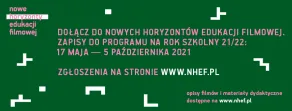
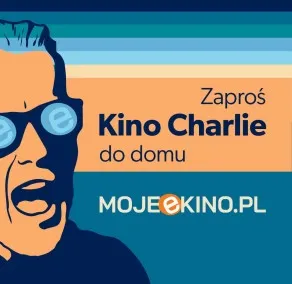
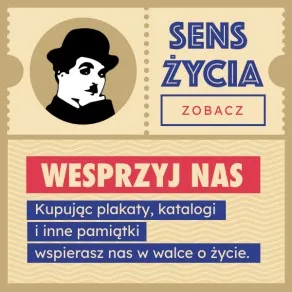
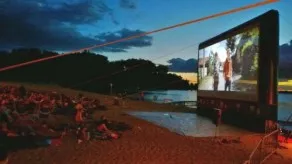
www.OpenCinema.pl
Zapraszamy do współpracy przy
organizacji kina letniego
organizacji kina letniego
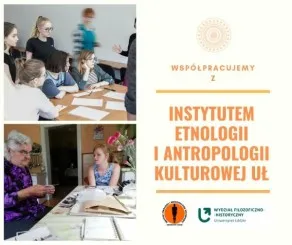

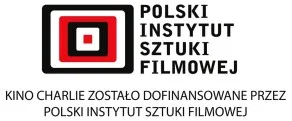
Copyright 2025 © Kino Charlie - Wszelkie prawa zastrzeżone
/
Polityka RODO
/
Polityka Cookies


